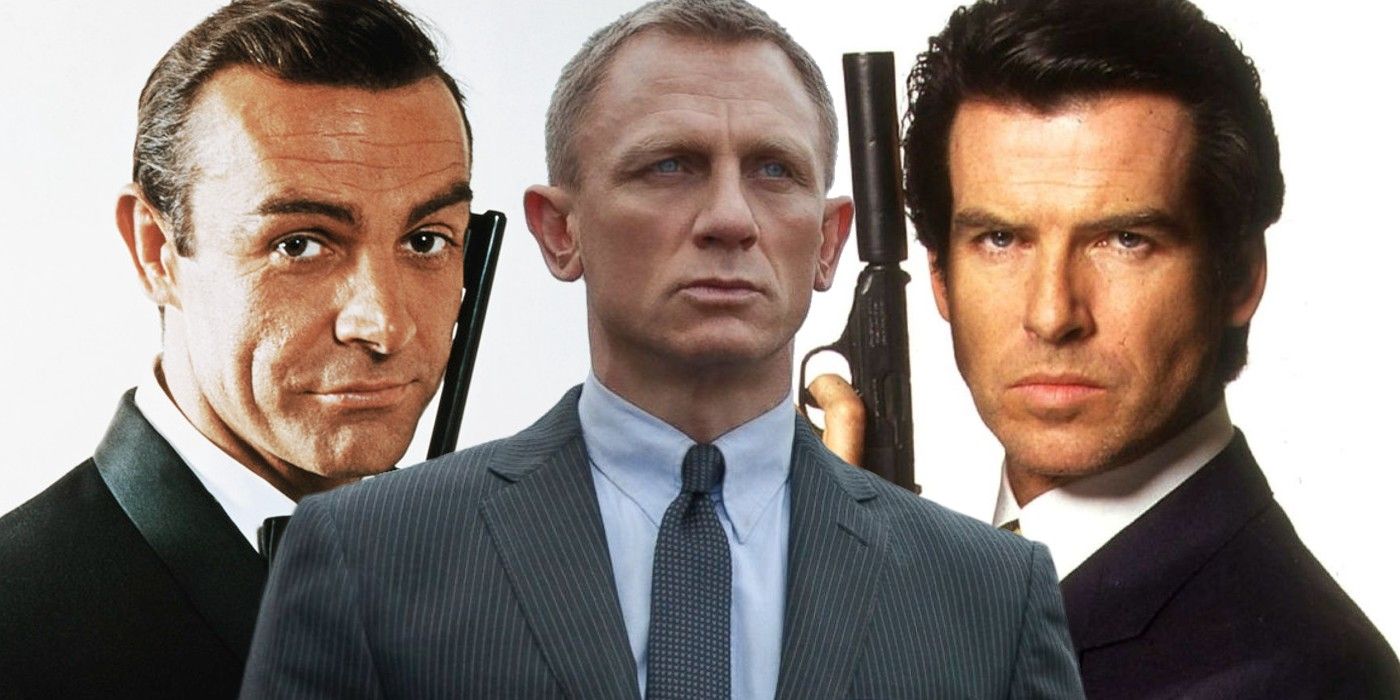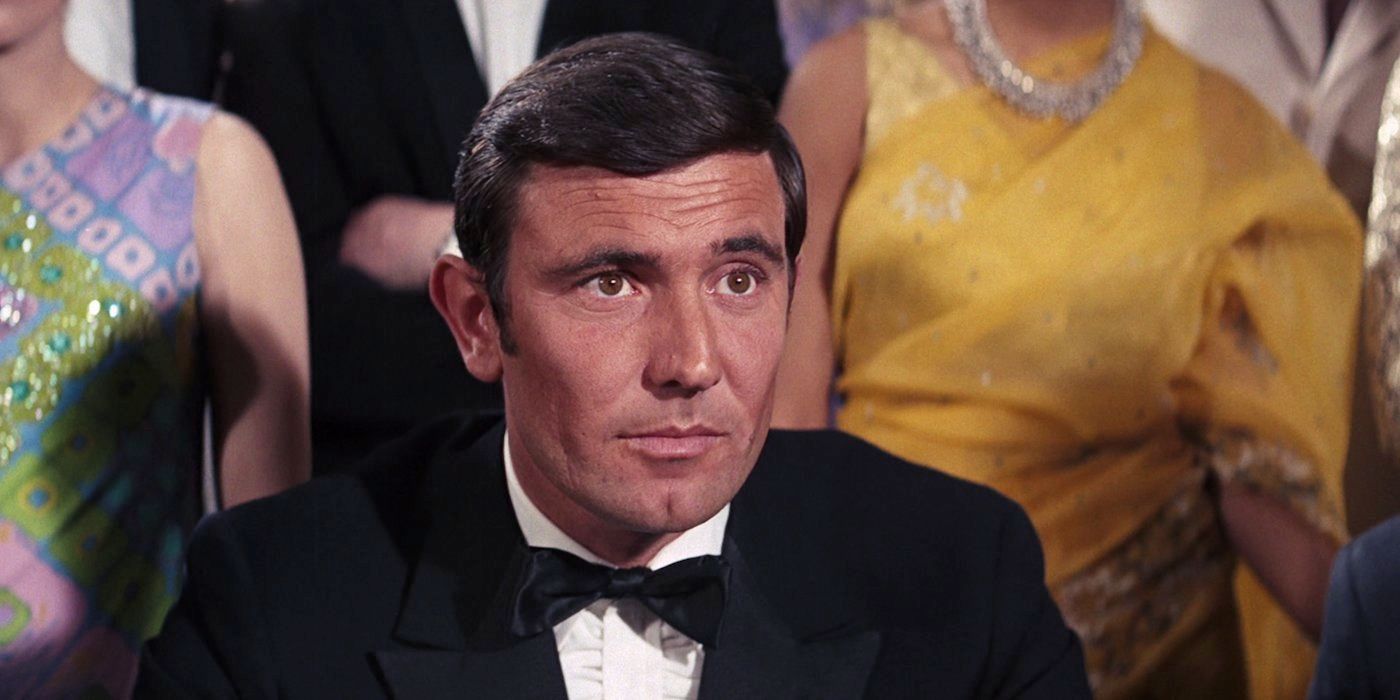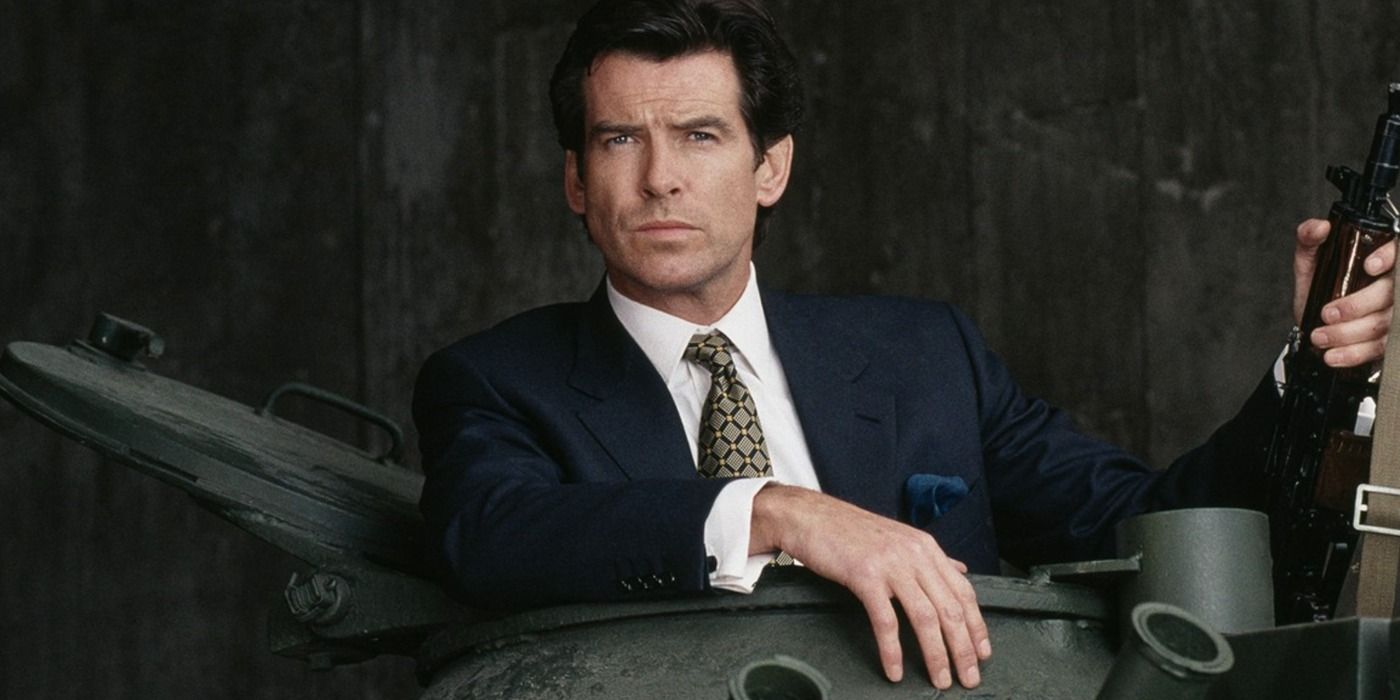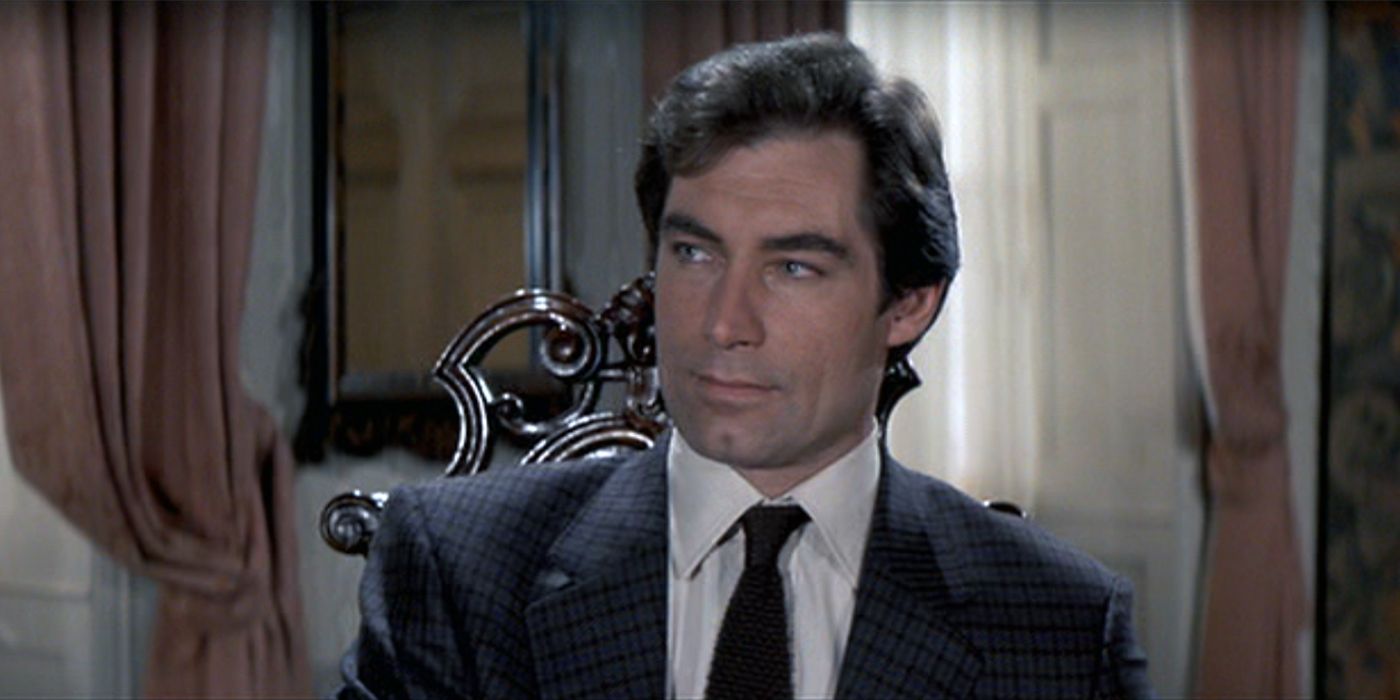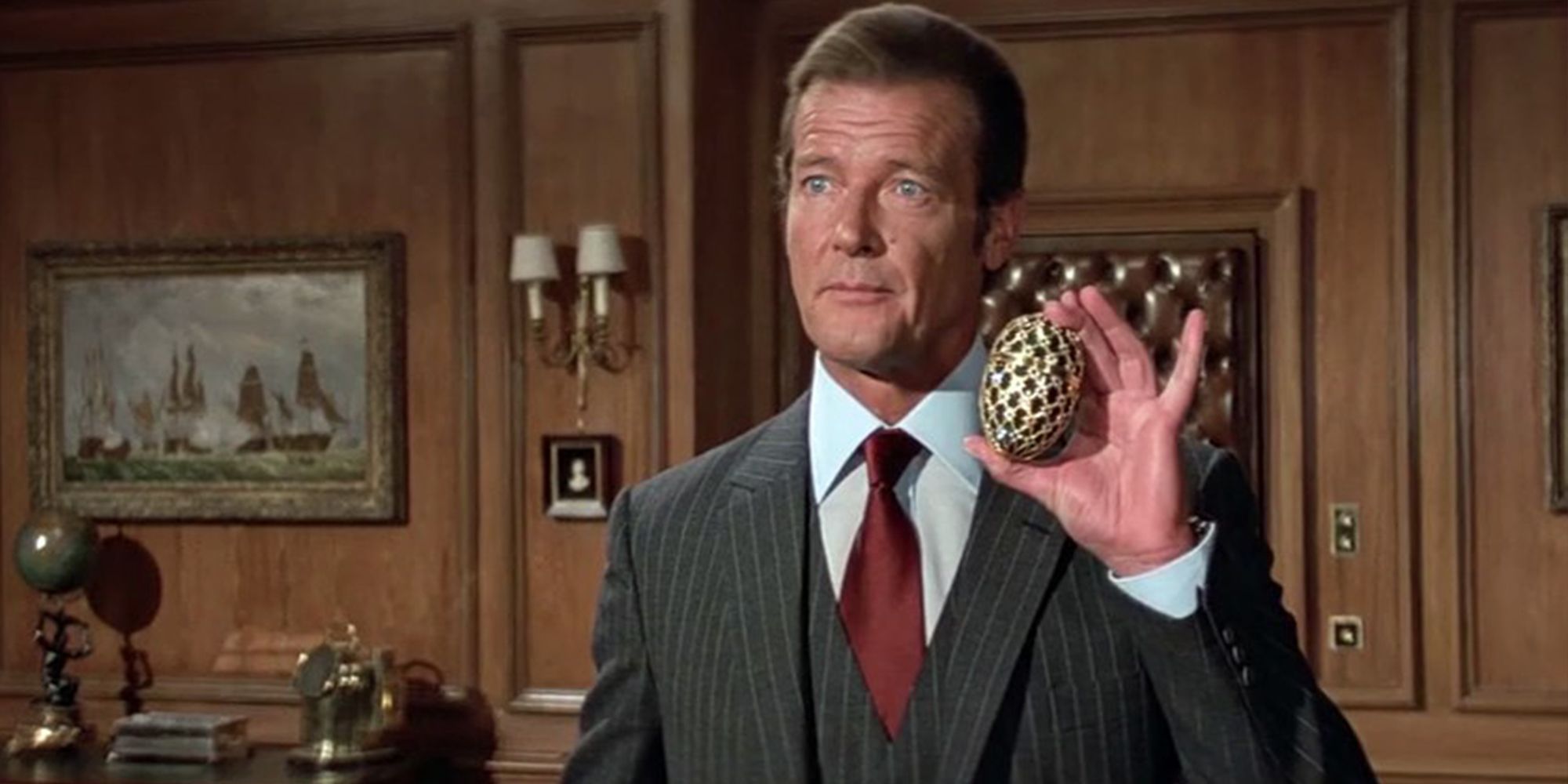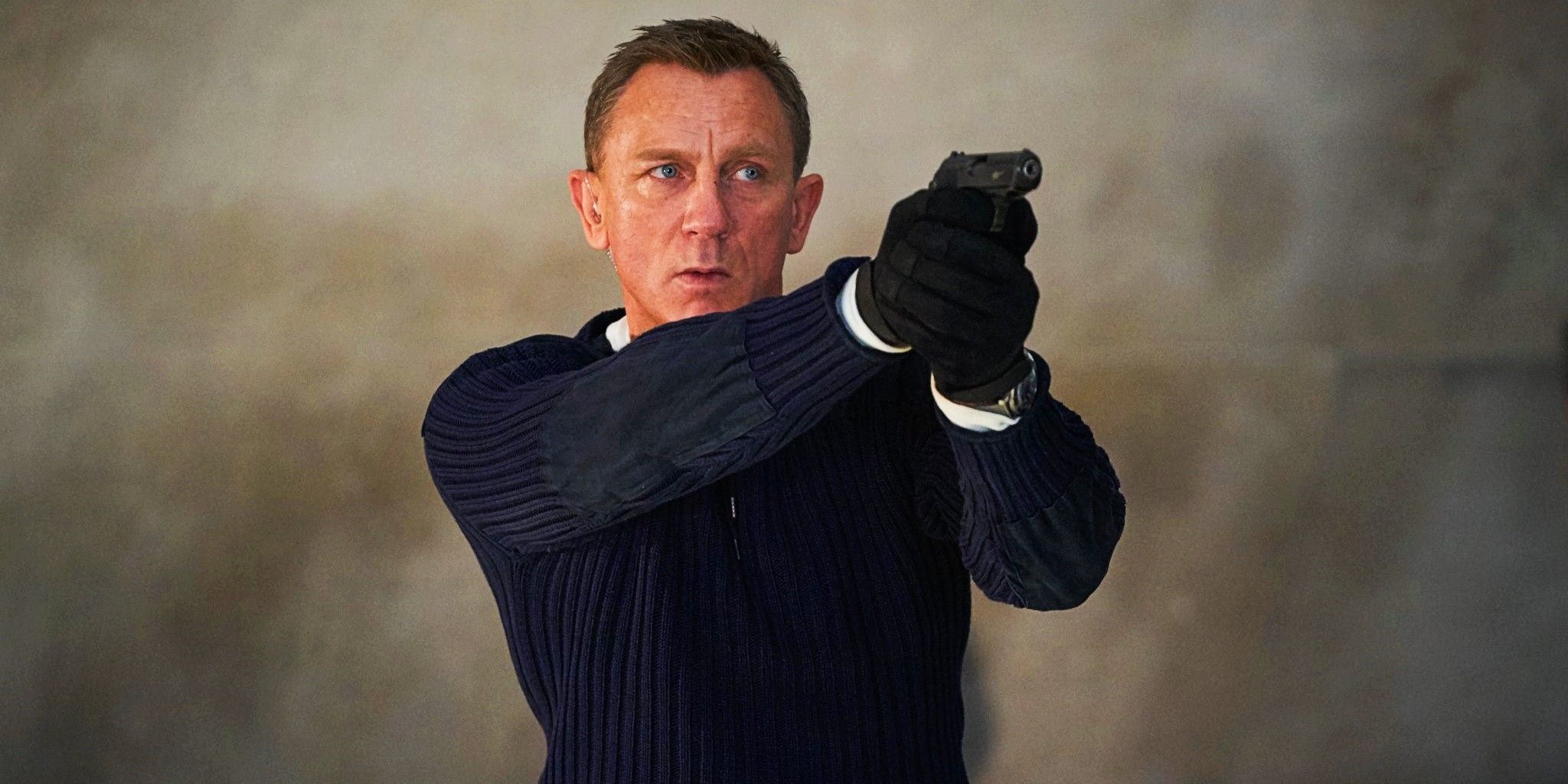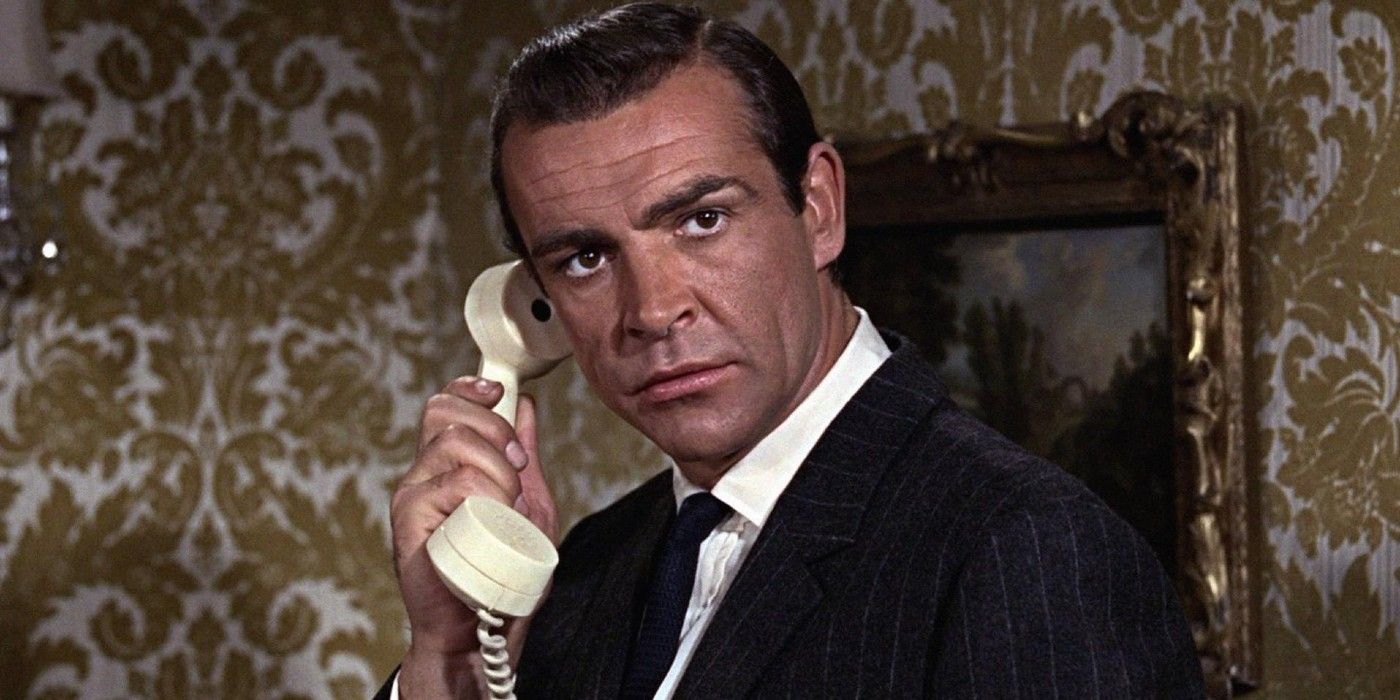How does Daniel Craig rank in the legacy of James Bond lead actors? A person's favorite James Bond reveals plenty about them. Those who pick Roger Moore might tend to be lighthearted dad joke connoisseurs; George Lazenby supporters refuse to follow the pack, while a good chunk of Daniel Craig fans are, in all likelihood, millennials. Sweeping generalizations aside, however, selecting the best James Bond is an incredibly subjective dilemma with no straightforward answer, and an actor who shakes one person's martini won't necessarily stir another's.
All six of the official Eon actors have brought something unique to Ian Fleming's iconic spy. All six possess distinct strengths and weaknesses, exhibiting some shades of Bond better than others. And to make the process even more difficult, some actors could justifiably complain they were ejected from the Aston Martin before their potential was fulfilled. With No Time To Die, Daniel Craig leaves the 007 mantle behind after 16 years of frowning and rogue MI6 shenanigans, and Eon's hunt for a successor will begin in 2022. But as Craig makes the bittersweet transition from active service, it's worth reevaluating how the legacy of his predecessors shuffles around.
It should be noted that none of the following performances can be considered poor by any means. Though the James Bond franchise has undoubtedly endured lean periods, each of its stars boast their own highlights and merits, and every one of them helped make 007 the big screen sensation he continues to be. As another actor faces the daunting, yet thrilling, challenge of receiving their license to kill, here's our ranking of each official James Bond actor... so far.
6. George Lazenby
If George Lazenby lags behind the James Bond pack, that's only because he departed the role after a single entry, and never had time to fully immerse himself into 007's world. Replacing Sean Connery for 1969's On Her Majesty's Secret Service, Lazenby was a controversial choice, selected for his looks and presence with virtually no acting experience to rely upon. Predictably, reviewers of the day were less than impressed by this impostor who had the gall to not be Sean Connery, and Lazenby's one and only James Bond performance was, for many years, considered a shameful experiment gone wrong in 007's history.
But as the James Bond franchise grew, and the idea of different actors playing Fleming's creation became more widely accepted, George Lazenby's brief sojourn received a much-needed reevaluation. With the benefit of hindsight, it becomes clear that Lazenby brought a greater physicality to James Bond, separating On Her Majesty's Secret Service from Connery-era action scenes of the past. In the same vein, Lazenby steered Bond toward darker, more emotional territory that might've taken fans by surprise in 1969, but actually foreshadowed the qualities Daniel Craig would later be applauded for in 2006. Considering his inexperience as a serious actor (no offence to Fry's Chocolate commercials), Lazenby's ability to convey a previously unseen vulnerability is better than it has any right to be.
Had George Lazenby not followed the terrible advice of outside influences and remained in the James Bond gig beyond a single film, Eon's second 007 could easily sit at the opposite end of this ranking. As it stands, On Her Majesty's Secret Service alone isn't enough to elevate Lazenby beyond his peers.
5. Pierce Brosnan
By virtue of starring in Die Another Day - widely considered the worst 2-hours James Bond has ever offered the world - it's difficult to rank Pierce Brosnan any higher than 5th, despite some sterling performances elsewhere in his 4-film run.
The Pierce Brosnan years began strongly with 1995's GoldenEye, reinvigorating the series after a period of legal uncertainty. Eon had Brosnan earmarked as a future James Bond years before the actor first slipped on a tuxedo, and GoldenEye proved precisely why, with the Remington Steele actor blending Lazenby's humanity, Connery's danger, and Moore's charm, whilst also adding a contemporary 1990s spin. Brosnan also struck upon a tonal balance of action and humor that went missing some time during the mid-1980s. Unfortunately, Tomorrow Never Dies and The World Is Not Enough failed to capitalize on Brosnan's early success, delivering diminishing returns and failing to keep up with the times. Most James Bond fans would attribute the Brosnan era's midpoint malaise to poor writing, rather than Brosnan himself, whose natural talents were obviously being curtailed by middling scripts.
And then Die Another Day happened. The first James Bond release of the new millennium left little doubt that 007 was aging like milk in the sun, while campy dialogue and tired tropes leaned into parodies like Austin Powers, which were rapidly catching their targets at the box office. Pierce Brosnan certainly isn't the reason fans view Die Another Day with all the affection of a flat tire, but neither did the actor emerge from the wreckage smelling of roses.
4. Timothy Dalton
The world wasn't ready for Timothy Dalton's James Bond in 1987, but the secret agent's fourth cinematic regeneration looks remarkably ahead of his time in retrospect. Like Brosnan, Dalton was courted by Eon years before eventually debuting, and the thespian brought a new severity that had been lacking in the latter years of Roger Moore. In The Living Daylights, James felt angrier, more bitter than his predecessors, and 1989's License To Kill doubled-down, delivering a no-holds-barred Bond that honored the grizzlier aspects of Ian Fleming's novels, and refocused the importance of good, old-fashioned espionage. The evolution from Moore to Dalton was a prelude to the even more drastic handover between Pierce Brosnan and Daniel Craig, but where 2000s audiences were ready for Bond to grow up, Dalton's darkness wasn't to everyone's taste.
As such, Timothy Dalton is arguably the most subjective James Bond in an already subjective series of 007 performances. For some, his portrayal of a ruthless killer is streamlined, undiluted Bond perfection; for others, it's simply not much fun. Dalton's middling position in this ranking is largely due to the incomplete nature of his run. Dalton sorely needed a third entry after The Living Daylights and License To Kill, and both Eon and the actor himself had a return in mind. Due to legal issues, Dalton's final chapter never materialized, but Mark Edlitz's The Lost Adventures of James Bond explores the unused scripts written between License To Kill and GoldenEye, revealing some highly promising concepts that likely would've cemented Timothy Dalton's legacy, addressed complaints about Bond's late-1980s tone, and bumped the actor up this very ranking.
3. Roger Moore
Appearing in a record seven James Bond films, the same can't be said of the Roger Moore years. Instead, the problem with Moore's ranking is that everything changes depending on which Roger Moore performance is being discussed. Between 1973 and 1985, Moore covered more shades of Ian Fleming's creation than any other actor before or since, ranging from dangerous killer to space-faring clown. A View To A Kill and Octopussy represent James Bond at his very weakest - a camp hero caricature with little depth or purpose. By the actor's own admission, Moore's stint as 007 lasted too long, and this is evident in his latter films through awkward romantic pairings and the palpable sense that Bond would rather be anywhere other than sliding down the side of a building shooting bad guys.
But elsewhere (The Spy Who Loved Me especially), Roger Moore embodied the very best of James Bond - a near-perfect blend of charm, humor, violence and wit, and possibly the most balanced 007 to grace the silver screen. Moore's tenure might've started too close to a Sean Connery impersonation, but Bond III soon brought his own talents to the table, while still retaining the qualities everyone loved about Britain's favorite spy. Though the septet of Moore films are characterized by their inconsistency, aggregating the actor's performances reveals a suave, casual master of humor who sauntered through escapades with the grace of a well-dressed swan. For long a time, Roger Moore was James Bond, and carried the character through dark days, legal troubles, and limp scripts, always maintaining the aura of a bona fide 007.
2. Daniel Craig
Barely a single blond hair separates the first James Bond from the most recent, but Daniel Craig very narrowly loses out to the original. The need for change was obvious after the Die Another Day debacle, and Bond's position at the pinnacle of espionage cinema found itself in serious jeopardy. Eon wanted a more realistic, grounded James Bond, and that's exactly what Daniel Craig delivered - and then some. In terms of emotional depth, no other 007 comes close, as Craig's Bond loved, lost, retired, un-retired, retired again, and fought to remain relevant in an ever-changing political landscape. Relationships became more detailed; not just in a romantic sense, but Bond's parental connection to M, his friendships with Q and Moneypenny, and the curious duality between himself and Ernst Stavro Blofeld.
Daniel Craig's James Bond was a radical reinvention, but the risk paid off in spades, proving (despite Die Another Day's best efforts) that 007 did have a place in the modern age. The true strength of Craig's Bond performance isn't his effortless style, dedication to realism, or the ability to meld humanity and stoicism - it's how, for the first time since Sean Connery, 007 spoke to an entire generation of fans. Even in weaker efforts like Quantum of Solace and Spectre, Daniel Craig's complete possession of character shines through, and despite challenging Roger Moore for longevity, the consistency of Craig's performance is far superior. For many of a certain age, Daniel Craig is the definitive James Bond and the measuring stick against which all future actors will be compared.
1. Sean Connery
Daniel Craig may be the most complete, nuanced James Bond - not to mention the most competent from an acting perspective - but there's something about the original article that simply can't be replicated. Every James Bond leading man since Connery's departure has been influenced to some extent by the progenitor, who inhabited the role between 1962's Dr. No and 1967's You Only Live Twice, before returning in 1971's Diamonds Are Forever. Sean Connery's 007 lacks the remarkable consistent quality of Daniel Craig's (especially in his final Eon effort, in which he acted as a stop-gap between George Lazenby and Roger Moore) but whereas later Bonds could model their own performances on what came before, it was Sean Connery who laid out the foundations for who James Bond truly is.
Across the golden trio of Dr. No, From Russia With Love and Goldfinger, Connery becomes visibly more attuned to his part, with Bond's third entry perfecting the formula. Every James Bond actor since has dipped back into Connery's Goldfinger one way or another, and even Daniel Craig can't claim to deviate completely from that 1960s blueprint. By contrast, Sean Connery took the bare bones of Ian Fleming's literary character and made sweeping changes for a theatrical audience, defining the kind of swagger James Bond would have, the way he dispatched villains, his demeanor around authority, and so much more.
That's not to say the Sean Connery James Bond films have aged well. Some of the attitudes displayed are abhorrent, and make for a grim rewatch in the present day. But purely in terms of playing 007, there's an authenticity to Sean Connery's Bond that none so far have bettered. And if Daniel Craig can't, probably none will.

